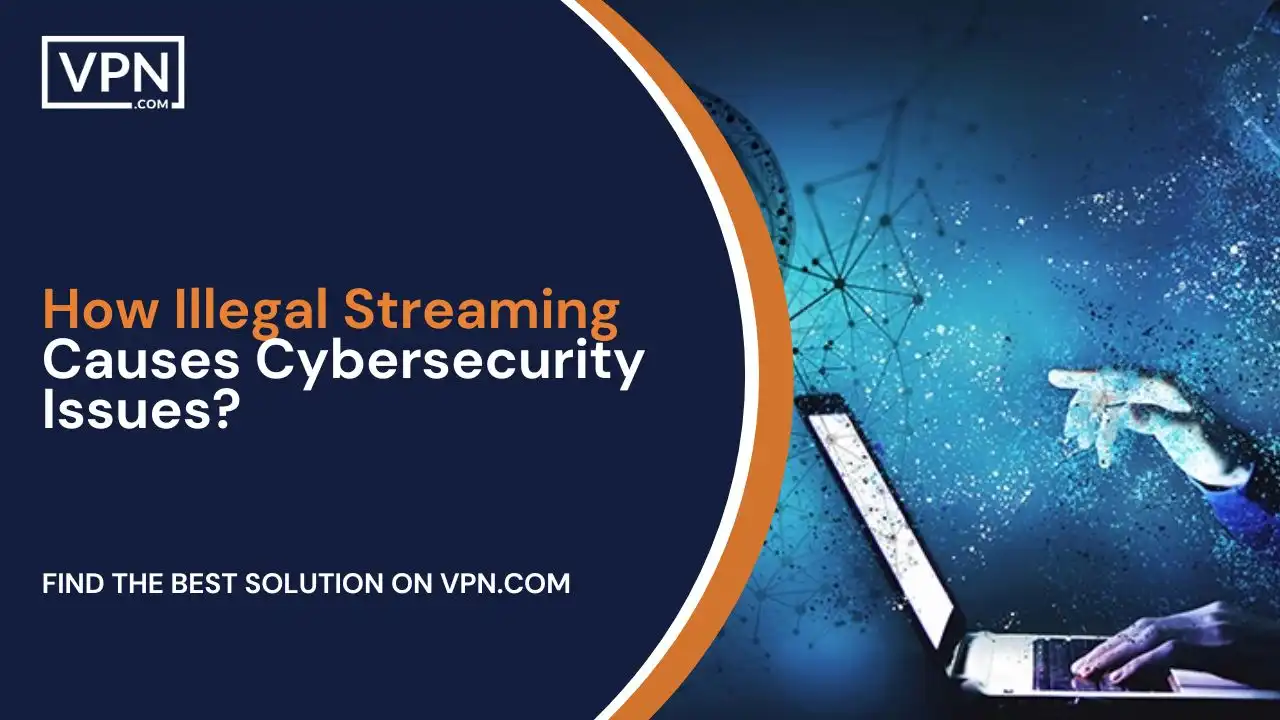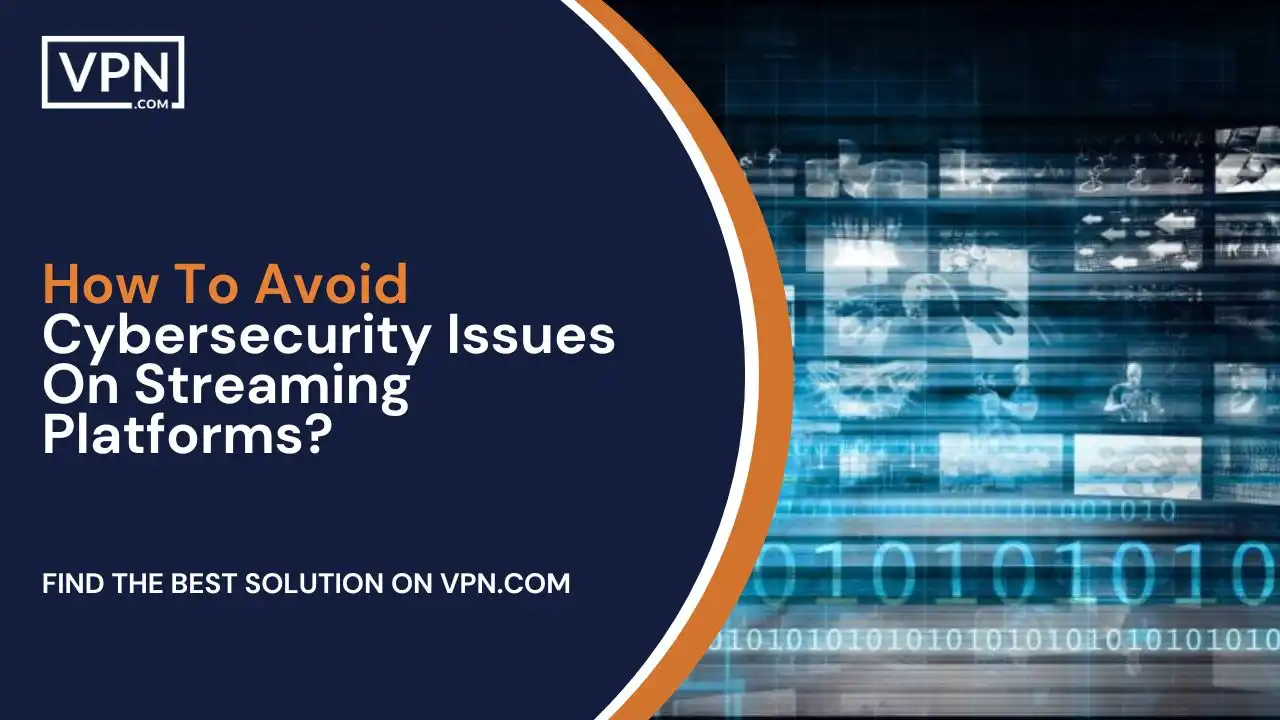What Are The Major Cybersecurity Issues With Streaming Services?

You might think that cyber threats are primarily found in big businesses and large-scale companies, right? However, this is not entirely accurate. The most frequent attacks until now were not huge data breaches or Advanced Persistent Threats (APTs), but rather, people face these threats through daily encounters with spam or malware. And here’s an interesting fact: Most cyberattacks occur in the entertainment sector. This typically happens when we’re trying to find a movie to watch or a game to play, often opting for websites that require little or no money. Last year, we studied how hackers exploited these entertainment sectors to compromise accounts. However, this year, we’ve discovered that the role played most significantly in cybersecurity issues is by streaming platforms.
For hackers, the best time to strike is when people switch their streaming platforms, as this transition opens up new and lucrative attack channels for them. For instance, did you know that when Disney+ was launched, various accounts were hacked within days? In these cases, hackers changed the accounts’ emails and passwords. They then used these accounts and sold them for more money on the internet. Not only this, but even famous streaming platforms like Netflix and Hulu are not immune to cybersecurity issues. At least 15,000 people are vulnerable to cyber threats because of these streaming platforms. Research has shown that 1 in 10 people have had their accounts hacked on these streaming platforms.
To help you understand how you can avoid these cyber threats, we are here with a guide. We will tell you about the major cybersecurity issues that you can face with streaming services. When you know the issues, you can find better ways to sort them out. Even if you can’t, we are still here to help you. However, start reading to discover some interesting facts about cyber threats on streaming platforms.
How Illegal Streaming Causes Cybersecurity Issues?

These alternative methods might be easy and free but you also give the cybercriminal a chance to get into your device. Hackers would use these illegal websites to target people who are looking for their favorite shows. They will scam them through “Free Downloads” for their popular shows or movies.

Get Started w/ NordVPN Today
- Top-rated VPN for OS unknown
- Ultra-fast speed in US in 2024
- Save 69% off with VPN.com Discount
- Plans starting at $2.99/month
- Rated 4.5/5 on Google Play with over 825,000 reviews
- Rated 4.7/5 on Apple App Store from 6,600 users
What Are The Major Cybersecurity Issues With Streaming Services?

People who love streaming usually forget the threats that they can face because of it. This is why we are here to warn you about some of the cybersecurity threats that you can face with streaming streaming services. Some of them are:
Phishing Scam
Do you know what is the most challenging part in addressing cybersecurity issues with streaming services, especially with Phishing? These attacks can be very tough to detect. They become more challenging for people who are not so tech-savvy. These individuals are often not familiar with the signs of scams. Hackers use such advanced technology that these emails or messages can appear completely legitimate.
Even smart people wouldn’t be able to tell the difference between real and fake. This is why it is very important to understand that you should be cautious of such messages and emails that ask for your personal information. We will suggest you not to even open emails that come from unfamiliar sources.
Risk Of Unauthorized Access
You might be thinking that it is not possible right? However, it is. Tell us yourself, don’t you use the same password for various accounts? So if you are doing this, don’t you think others might be doing the same? This is why we always say that it is not easy to prevent Credential stuffing attacks. The best way to avoid it is to use strong passwords for your accounts.
To mitigate cybersecurity issues with streaming services, you must use different passwords for different accounts, especially when it comes to streaming sites. The best way to avoid this is to use Two-factor authentication. It will prevent unauthorized people from entering your account. If someone tries to access your account, they first have to pass two-factor authentication. They will be asked to enter a unique code which is sent to their email or mobile phone number. This makes it very hard for hackers to access your information and enter your account. So, save yourself from such fraud by playing smart.
Threat Posed By Brute Force Attacks
Another major cybersecurity issue faced by streaming websites is Brute Force Attacks. In these attacks, hackers will use various tools to guess your username and password. They will repeat the procedure until they find the right combination to enter your account unauthorized.
The brute force attacks usually take place on websites that have very weak security. Hackers can also enter your account easily if you have a weak password. This is why as we said, try to have a strong and unique password.
To avoid brute force attacks many streaming websites have limited login attempts. It means that they don’t have a lot of chances to keep guessing. Some websites even have complex password requirements, they do it to make sure your account is secure.
However, you can yourself set a unique password that might be tough for anyone to guess, which is essential in addressing cybersecurity issues with streaming services. You also have the option of using Two-Factor Authentication, which is why we think it is the best. It is used to prevent unauthorized people from entering into your account. However, it is not always solely our responsibility to take care of ourselves. Streaming platforms should also take necessary measures to avoid such attacks.
Malware Attacks
To solve a problem, it is very necessary to identify it. You cannot solve a problem until you know about it. After finding out what the cybersecurity issues with streaming services can be, you should start working on its precautionary measures. Take every safety measure that is required to protect your account. However, here are some of the precautionary measures that you can take to protect your account in the future:
So if you want to avoid malware attacks then try to download apps from trusted sources such as app stores. You should also avoid opening suspicious links sent by someone or on any website.
Also, try installing antivirus software on your device. A good antivirus software will help you detect and get rid of these malicious software that might be installed on your device. To protect your sensitive data and devices from dangers, it is important to be cautious and watchful.

Get Started w/ NordVPN Today
- Top-rated VPN for OS unknown
- Ultra-fast speed in US in 2024
- Save 69% off with VPN.com Discount
- Plans starting at $2.99/month
- Rated 4.5/5 on Google Play with over 825,000 reviews
- Rated 4.7/5 on Apple App Store from 6,600 users
How To Avoid Cybersecurity Issues On Streaming Platforms?

To solve a problem, it is very necessary to identify it. You cannot solve a problem until you know about it. After finding out what the cybersecurity issues with streaming services can be, you should start working on its precautionary measures. Take every safety measure that is required to protect your account. However, here are some of the precautionary measures that you can take to protect your account in the future:
Use Strong Password
Hackers can only use tools to guess your passwords but they can never get your actual password. It means that if you use a common password then they can easily guess it. Which is why it is very important to be creative when you are choosing your password. Always choose a strong and unique password which will be tough for hackers to guess.
However, there are many streaming platforms that address cybersecurity issues with streaming services by helping you choose a strong password. Even most of the platforms have strong password requirements. They do this for your safety and their own credibility, because if an account gets hacked from a specific platform, then that specific platform will be questioned, not the user.
Don’t Use Same Password
The major cause of brute force attacks, and a key cybersecurity issue with streaming services, is the use of the same password on different accounts. So this is one thing that you should take care of. Never use the same password on different accounts because it will be easier for hackers to guess your password and get access to your account. Isn’t losing one account better than losing every account?
Use Two-Factor Authentication
The best way to avoid cybersecurity issues with streaming services is by using two-factor authentication. If it is enabled on your account, then you will receive an email or text on your number every time you try to login to your account. This way, hackers won’t be able to access your account until they have the code. So, basically, at the end, they will stop trying. This is the most effective way of preventing hackers from getting into your account.

Get Started w/ NordVPN Today
- Top-rated VPN for OS unknown
- Ultra-fast speed in US in 2024
- Save 69% off with VPN.com Discount
- Plans starting at $2.99/month
- Rated 4.5/5 on Google Play with over 825,000 reviews
- Rated 4.7/5 on Apple App Store from 6,600 users
Conclusion
In conclusion, customers need to be aware of the cybersecurity dangers associated with streaming services because their convenience comes at a price. Cybercriminals are constantly searching for new ways to take advantage of stupid people, from malware-infected apps to phishing schemes and credential stuffing attacks.
Through ongoing monitoring and awareness of cybersecurity issues with streaming services, consumers can maintain their streaming service benefits without risking their security. We hope that we have cleared up all your confusion. However, if you still have any, then feel free to ask us.
Customer Reviews for NordVPN: In-Depth Review, Tests, and Stats

Connection issues with MLB.TV
May, 2 2023

Prompt customer service
May, 6 2023

I would highly recommend
December, 15 2023



